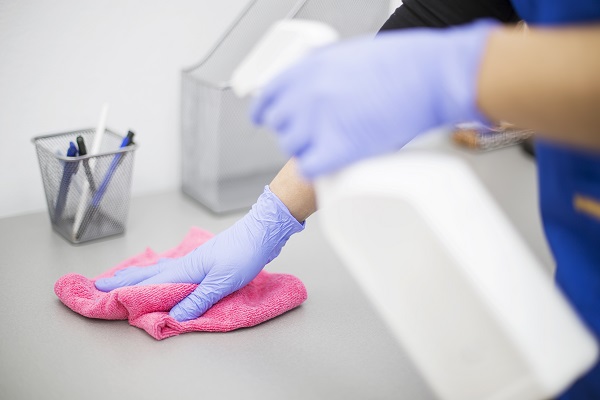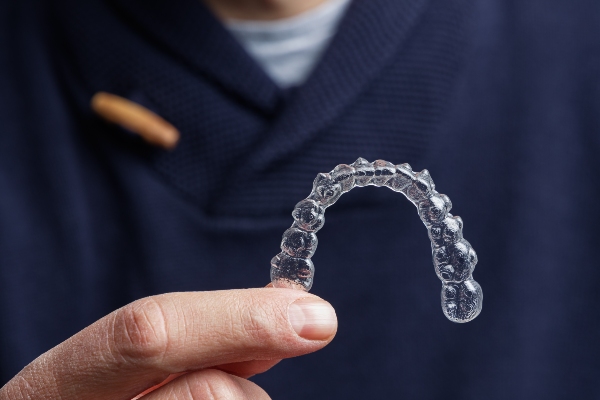Patient FAQs About Dental Office Sterilization

Bacteria, diseases, and viruses can spread rapidly, anywhere and anytime, which is why dental office sterilization is so important. Dental offices can be breeding grounds for this spread, as the oral cavity contains a lot of bacteria. However, with the right sterilization practices, dental offices can ensure a safe, clean, and healthy space for everyone to get their teeth and gums cared for.
Understanding dental office sterilization
Outlined below are some frequently asked questions and answers about how dental offices are sterilizing appropriately. Review this information when curious about dental office practices.
1. How is dental office sterilization done?
Dental office sterilization is done in a number of ways. Each office has its own practices; however, generally speaking, they are similar. Outlined below are a few methods used.
- Spray down all surfaces with antibacterial spray
- Use antibacterial wipes to clean surfaces when a spray is not accessible
- Ensure that all staff members wear gloves
- Require staff and patients to use hand sanitizer and wash hands with soap frequently
- Sterilize all dental tools after each use
2. Why is dental office sterilization important?
Dental office sterilization is important because it protects the entire staff, as well as all patients. Without protection, both parties are at risk of catching or spreading illnesses or diseases. Aside from being at risk of catching or spreading germs, it is also helpful as it keeps the practice in cleaner shape overall.
3. How often are dental offices sterilized?
Dental offices are sterilized after each patient comes and goes. Typically, this sterilization is just of the chair that was sat in and any instruments that were used. However, at the end of each business day, a cleaning team will also come into the dental office to thoroughly sterilize the entire place. This includes the front desk, doorknobs, bathrooms, dental chairs, and all instruments/tools that are used.
4. Is there a wrong way to sterilize dental offices?
Absolutely not! Knowing how to navigate through the sterilization process can be quite difficult. A lot of it is trial and error to see what is most effective while being the easiest to execute. What is most important is that all surfaces get thoroughly cleaned to ensure as close to 100% sterilization as possible.
5. Who performs dental office sterilization?
Everyone should abide by dental practice sterilization protocols; however, not all are responsible for performing it. Some offices have people dedicated solely to performing sterilization, while others may require that all staff members sterilize after interacting with a patient.
Find out more about dental office sterilization
The importance of dental office sterilization is far greater than what gets discussed. Without these sterilization practices, dental offices, the staff, and patients are at risk of spreading germs. Thankfully, each practice is equipped with its own sterilization methods. To learn more about sterilization or preventing the spread of germs, reach out today. Our team can go over any questions or concerns, or get you scheduled for an appointment.
Request an appointment here: https://stonecanyondental.com or call Stone Canyon Dental at (972) 226-6655 for an appointment in our Sunnyvale office.
Check out what others are saying about our services on Yelp: Read our Yelp reviews.
Recent Posts
Getting a dental crown is a seamless procedure that is done in dental offices every day. There are various reasons to get a dental crown, which will play a role in how the process goes. For example, for those getting a crown to finish the tooth replacement process after an implant has been inserted, the…
If a patient suffers from misaligned teeth or a misaligned bite, Invisalign® clear aligners might be the solution they need to ensure their smiles stay bright – and straight! As one of the most trusted clear aligner systems will help straighten teeth and correct the bite without wires and brackets, meaning that patients can smile…
Your dentist may recommend a dental bridge if your case needs it. Every patient has a different set of needs. Proper assessment allows the dentist to suggest the right dental replacement. Here are the details on when a dental bridge may become your dentist’s recommendation.Dentists often encourage their patients to stop consuming tobacco. Following this…
When it comes to replacing missing teeth, dental bridges are a popular and reliable option that offers versatility by restoring one to four missing teeth in a row. Along with restoring a smile by replacing missing teeth, a dental bridge offers multiple benefits to one's oral health while addressing several issues simultaneously.Tooth loss can occur…







